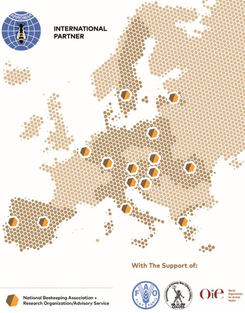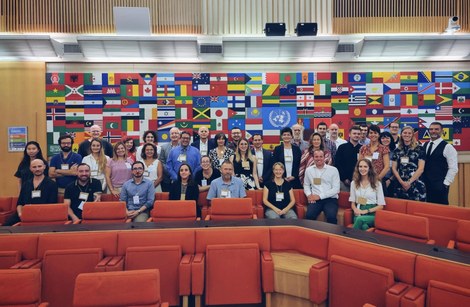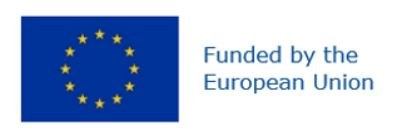Cluster 6 - B-THENET
Introduction
‘B-THENET - Best practices and innovations for a sustainable beekeeping’ is a Horizon Europe program between 18 partners. This Thematic Network of European beekeeping is based on a multi actor approach to engage beekeepers, advisors, researchers, policymakers, industry, consumers, and all stakeholders of the beekeeping sector. The coordinator is Istituto Zooprofilattico Sperimentale Del Lazio E Della Toscana, ISZLT in Rome, Italy.
The project starting date is 01.09.2022 and the end date is 31.08.2026.
Project description
The B-THENET Thematic Network implements a multi actor (MA) approach to modernize the EU beekeeping sector, sharing knowledge that is ready to be put into practice, while fostering innovation and digitalization. Beekeepers will be advanced toward more economically viable and sustainable beekeeping through the knowledge sharing and training of useful and applicable best practices. Our MA approach engages the entire apiculture sector (beekeepers, advisors, researchers, policymakers, industry, consumers, etc.) to collect, categorize and help select best practices and applicable research findings not sufficiently known, using a bottom-up methodology that populates two accessible platforms (“Practices” and “R&I”). Only practices that meet beekeepers’ needs, are effective and ready to use, will be selected, shared and customized in our public platform (“Exchange”) and in national sub-networks (13 National Centers), so we can take into account the differences between territories, and adapt practices to specific regions, languages, equipment, bee genetics, diseases, and the operational scale of beekeeping. This approach will support the setting-up of tailored and validated best practices. A sociological study will map out the channels most consulted by beekeepers to maximize the dissemination of practices in a specific, long-term platform (“Repository”), which is set up to share best practices in appealing, easy to understand, audio-visual materials, translated into 15 EU languages. The flow of practical information will be supported by the 13 National Centers, 3 International Centers and by the targeted events (312 national and 6 international), 1 EU manual on best practices, and 1 set of guidelines for advisors in beekeeping, thus contributing to a rapid cross-fertilization process and to a greater acceptance of the final outputs.
Objectives
These are the objectives of B-THENET:
- Modernize EU beekeeping sector by establishing a multi actor network with complementary knowledge that connects: beekeepers, researchers, advisors, and the other actors of the apiculture sector.
- Collect, categorize (“Inventory”) and select good practices and new research findings ready to put into practice or not sufficiently known using a bottom-up methodology.
- Create a digital knowledge platform (“Exchange”) to increase the flow of practical information in the EU
- Create a digital knowledge platform (“Repository”) to collect, share and store knowledge on best practices, for the long term.
Role of Ghent University
Ghent University will create one of the 13 National B-THENET centers where on-field validation will be established. National events and webinars will be organized, training on best practices and innovations will be performed with a standardized sharing/learning and educating methodology.
Website
To be announced
Contact
Prof. Dirk de Graaf
Department of Biochemistry and Microbiology
Phone number: +32 9 264 87 32
E-mail
Funding info
Disclaimer
Funded by the European Union. Views and opinions expressed are however those of the author(s) only and do not necessarily reflect those of the European Union or the European Research Executive Agency (REA). Neither the European Union nor the authority can be held responsible for them.


